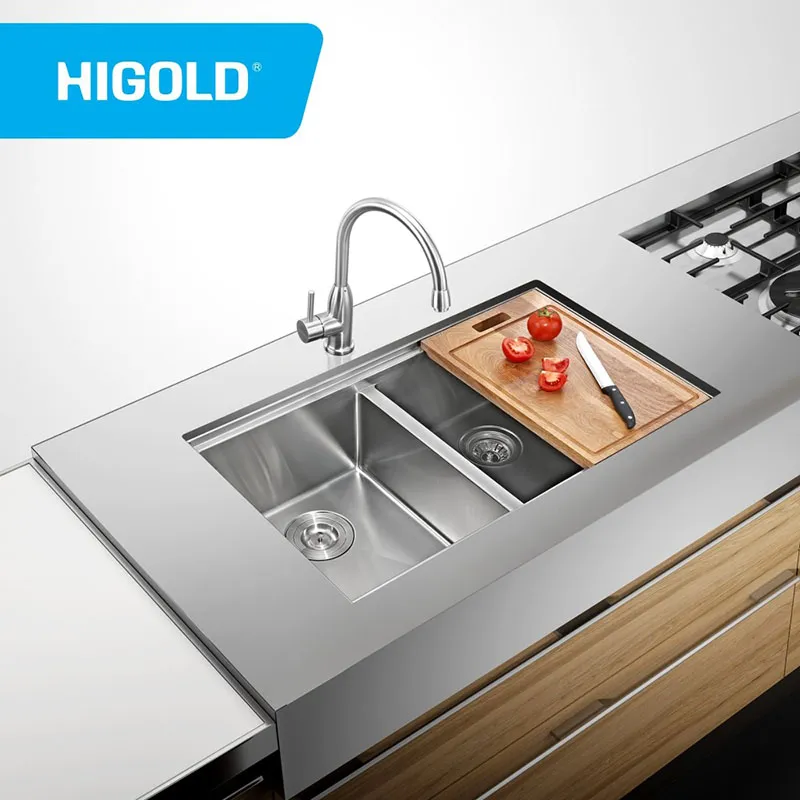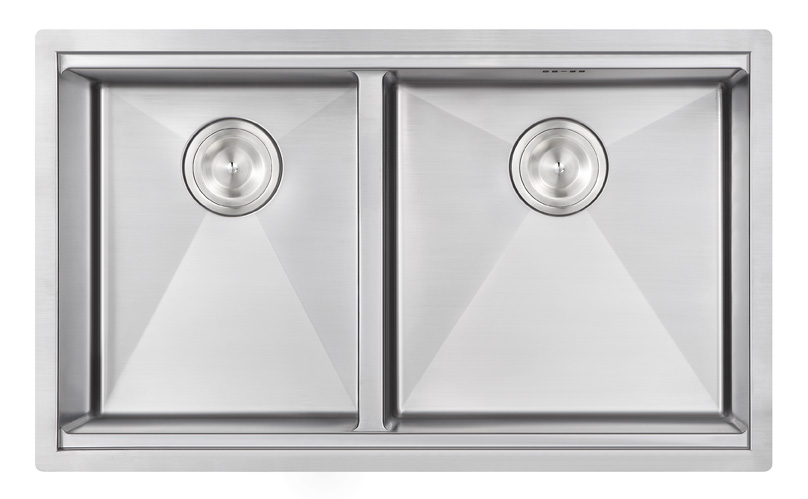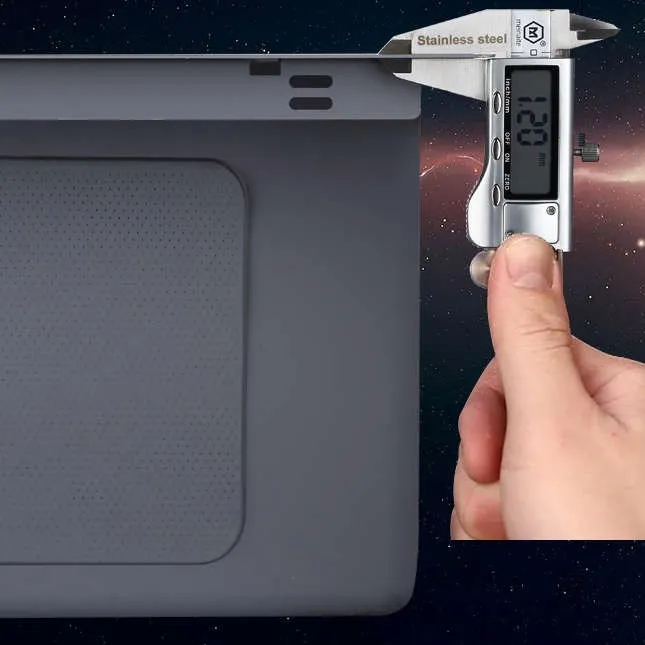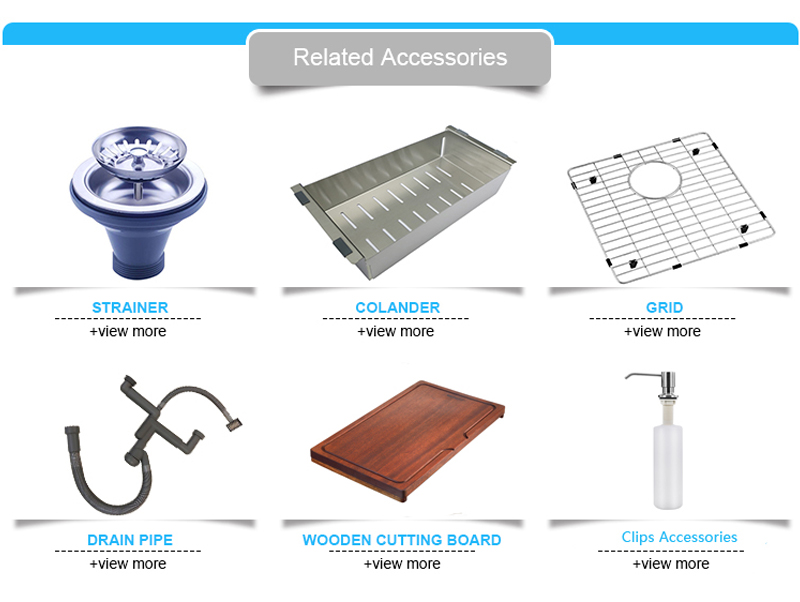In modern kitchen design, sinks are an indispensable basic facility. In particular, undercounter kitchen sinks have become the first choice for more and more family kitchens due to their modern and beautiful appearance and practicality. When choosing an undercounter sink, the material of the sink is particularly important because it directly affects the durability, cleanability and aesthetics of the sink.
Common undercounter sink materials include stainless steel sinks and composite quartz sinks. Each material has its unique advantages and applicable scenarios. This article will analyze the characteristics of these common materials in detail and help consumers make appropriate choices.

What is an undercounter kitchen sink?
An undercounter kitchen sink is a type of sink that is embedded under the kitchen countertop. Unlike traditional top-mounted sinks, the edge of an undercounter sink is completely under the countertop. This design can avoid the gap between the sink and the countertop and reduce stain accumulation. Undercounter sinks are becoming more and more popular because of their simple, modern appearance and easy cleaning.
Undercounter sinks not only improve the overall aesthetics of the kitchen, but also make it easier to clean and maintain the sink because its edge is flush with the countertop. In addition, undercounter sinks are suitable for a variety of kitchen countertop materials, such as marble, granite, artificial stone, and stainless steel.

What is the best material for an undercounter kitchen sink?
1. Stainless steel sink
Stainless steel sinks are one of the most common materials for undercounter sinks and are widely used in home and commercial kitchens. Due to their durability and easy cleaning, stainless steel sinks have become an indispensable part of the kitchen.
Features of stainless steel sinks:
· Durability: Stainless steel sinks are very durable. It has strong corrosion resistance and oxidation resistance, and can resist erosion by water, oil, and most common chemicals. This allows stainless steel sinks to withstand long-term use and wear, and is suitable for all kinds of high-frequency kitchens.
· Easy to clean: Stainless steel has a smooth surface and is non-porous, making it very easy to clean. Even if there are stains on the sink, it can be cleaned quickly to keep it tidy.
·Heat resistance: Stainless steel has good heat resistance and can withstand direct contact with high-temperature objects, which is a very important feature for kitchen cooking.
·Modernity: Stainless steel sinks have a modern and simple appearance, which can perfectly match various kitchen decoration styles, especially suitable for modern and minimalist kitchen designs.
·Not easy to scratch: Although stainless steel sinks may have small scratches during use, they are superior in scratch resistance compared to other materials.
Disadvantages of stainless steel sinks:
·Noise problem: Stainless steel sinks may make loud noises when in use, especially when the water flow hits the bottom of the sink. This may become a disturbing factor in a quiet environment.
·Fingerprints and water stains: Although the surface of stainless steel is easy to clean, it is easy to leave fingerprints and water stains in daily use, especially when the surface is smoother.
2. Composite quartz sinks
Composite quartz sinks are a material made of a mixture of crushed quartz and resin, usually formed by high temperature and high pressure pressing. Compared with stainless steel sinks, composite quartz sinks have a unique appearance and a series of excellent physical properties. It has become an increasingly popular choice in modern kitchens, especially in homes that focus on high-end kitchen design.
Features of composite quartz sinks:
· Scratch resistance: Composite quartz sinks are very hard and have extremely high scratch resistance. Even sharp knives or hard objects that touch the surface of the sink will hardly cause noticeable scratches. This makes composite quartz sinks an ideal choice for kitchen equipment that needs to be durable for a long time.
· Heat resistance: Composite quartz sinks can withstand temperatures up to 300°C, so hot pots or baking trays can be placed directly without damaging the sink. Its high temperature tolerance makes it excellent when handling hot food and kitchen supplies.
· Stain resistance: The surface of the composite quartz sink is very dense, so it can effectively prevent stains from penetrating. Even grease, coffee or food stains will not easily adhere to the surface of the sink, making it very convenient to clean.
· Aesthetics: The composite quartz sink has an elegant appearance and rich colors to meet the needs of different kitchen styles. Its smooth appearance and full texture make it one of the high-end choices in modern kitchen design.
Disadvantages of composite quartz sinks:
·Heavier: Composite quartz sinks are much heavier than stainless steel sinks, so the load-bearing capacity of the countertop needs to be considered when installing. Due to its heavy weight, special care needs to be taken during installation to ensure that the sink is stable.
·Higher price: Composite quartz sinks are generally more expensive than stainless steel sinks. Although their durability and aesthetics make the investment worthwhile in the long run, the relatively high initial cost may make some consumers hesitate.

How to choose the right material for an undercounter sink?
When choosing an undercounter kitchen sink, the material is one of the most important considerations. Different materials have different performance, appearance and price, so it is critical to choose a sink material that is suitable for your kitchen. Here are some key points to help consumers make decisions.
1. Consider durability
If you use the sink frequently in your kitchen, especially for cooking and washing food, then durability is particularly important. At this time, it may be more appropriate to choose a stainless steel sink because it has strong resistance to corrosion, oxidation and scratching. While composite quartz sinks are very hard, they are heavier and may require a higher load-bearing capacity on the countertop, and require more caution when installing.
2. Maintenance and cleaning
If you are very particular about cleaning and maintaining your sink, composite quartz sinks may be a better choice due to their smooth surface and excellent stain resistance. Its surface is almost not easy to absorb stains, making it easier to clean. Although stainless steel sinks are also easy to clean, they may leave water stains and fingerprints on the surface and need to be wiped regularly.
3. Aesthetics and style
If the design style of the kitchen tends to be modern and simple, a stainless steel sink may be more in line with the overall style of the kitchen. Its simple and bright appearance can enhance the overall aesthetics of the kitchen. For kitchens that pursue high-end and unique designs, the texture and rich colors of composite quartz sinks make it an ideal choice for high-end kitchens.
4. Budget
Budget is an important consideration when choosing a sink material. Although stainless steel sinks are relatively affordable, they are equally good in durability and functionality. Composite quartz sinks are more expensive and are suitable for users with a more adequate budget and higher requirements for appearance and performance.

Can I Buy Kitchen Sinks and Faucets Directly from Higold’s Factory?
Yes, Higold sells directly from our factory, ensuring you get the best prices for high-quality kitchen sinks and faucets. By purchasing from us, you can benefit from wholesale pricing and discounts on bulk orders. We specialize in ODM and OEM projects, offering customized solutions to meet your business needs. As a direct supplier, we ensure that every order is handled with care, from manufacturing to delivery.


